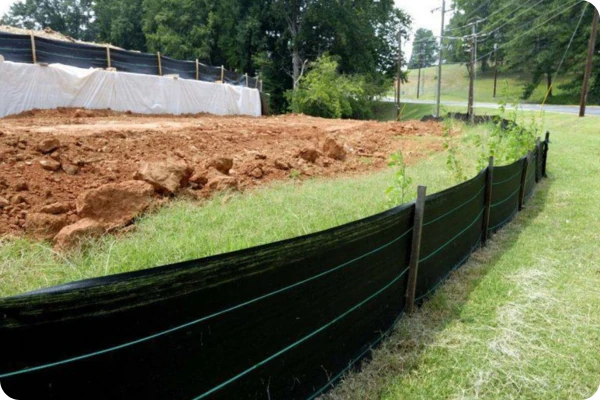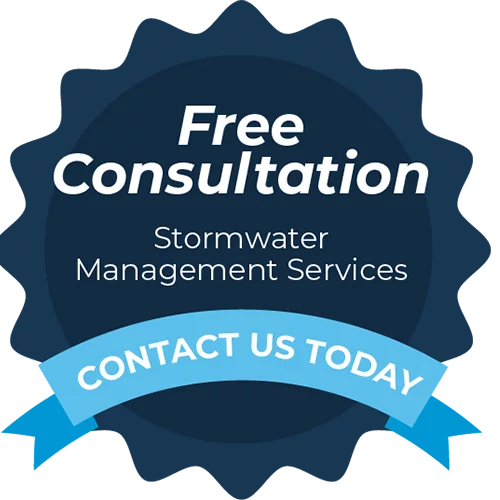Stormwater pollution can have devastating effects on our waterways, and the Environmental Protection Agency (EPA) enforces strict regulations to prevent it. For many facilities, obtaining a Stormwater Pollution Prevention Plan (SWPPP) is a crucial step in complying with these regulations. However, creating a comprehensive SWPPP can be complex, which is why professional guidance is often essential.
If your facility in Virginia, Maryland, or Washington, DC, needs help developing an SWPPP or has additional stormwater management needs, iSTORMWATER is here to assist.
Call us today at (410) 231-3455 or contact us online to tell us about your stormwater needs.

What Is a Stormwater Pollution Prevention Plan (SWPPP)?
An SWPPP outlines the measures your facility is taking to prevent pollutants from entering nearby waterways. This document is a key requirement for obtaining stormwater permits. There are seven essential components of an SWPPP:
- Detailed Site Descriptions
- Information about receiving waters, stormwater conveyances, monitoring points, and more, to aid responders in emergencies.
- Pollution Prevention Team Contact Details
- Contact information for the individuals responsible for implementing the SWPPP.
- Pollution Sources & Risk Areas
- A list of activities, outdoor storage areas, vehicles, and equipment that could cause pollution.
- Control Measures & Procedures
- Detailed schedules and processes to mitigate potential pollutants.
- Emergency Spill Response Plans
- Step-by-step instructions for addressing spills.
- Inspection & Monitoring Schedules
- Regular assessments to ensure compliance and identify risks.
- Employee Training Documentation
- Training programs to educate staff about their roles in pollution prevention.
Each of these components requires thorough documentation and planning, often more complicated than expected. iSTORMWATER’s experts can simplify the process, ensuring your SWPPP meets all requirements.
Who Needs a SWPPP and When Is It Required?
A SWPPP is required for facilities that may discharge pollutants into stormwater or nearby waterways. Here’s what you need to know about when and who needs an SWPPP:
When Is a SWPPP Required?
A SWPPP is mandatory when applying for a National Pollutant Discharge Elimination System (NPDES) Permit. This includes facilities that:
- Discharge pollutants such as sediment, oil, or chemicals into local waterways.
- Operate in industries regulated under the EPA’s Stormwater Program.
The SWPPP process begins with submitting a Notice of Intent (NOI), detailing potential pollutants and identifying the receiving waterway. While facilities discharging into municipal sewer systems may not require an NPDES permit, they must still comply with local stormwater regulations.
Who Needs a SWPPP?
SWPPPs are typically required for facilities in the following categories:
- Industrial Facilities
- Factories, warehouses, and other industrial operations that handle materials or processes contributing to stormwater pollution.
- Construction Sites
- Projects disturbing one acre or more of land, or those part of a larger common development plan, need a SWPPP under the Construction General Permit (CGP).
- Municipal Operations
- Sites like landfills, vehicle maintenance yards, and wastewater plants operating under Municipal Separate Storm Sewer System (MS4) permits.
- Transportation Facilities
- Airports, railways, trucking terminals, and marinas that may discharge oil, fuels, or sediment into waterways.
- Energy and Utilities
- Power plants, oil and gas sites, and renewable energy facilities with potential pollutant discharges.
If your facility fits into one of these categories or engages in activities impacting water quality, you likely need a SWPPP to remain compliant with federal and local stormwater regulations.
Unsure if your facility needs a SWPPP? Contact iSTORMWATER today to assess your compliance requirements and ensure you meet all regulatory standards!
Why Choose iSTORMWATER for Your SWPPP Needs?
Navigating stormwater compliance can be overwhelming, but iSTORMWATER makes it easy. Our team provides expert guidance through federal, state, and local requirements. With our ethical practices, technical expertise, and commitment to customer satisfaction, we’ve earned the trust of property managers, business owners, and government facilities throughout Virginia, Maryland, and Washington, DC.
Contact iSTORMWATER Today
Ensure your facility meets all stormwater compliance standards with professional help from iSTORMWATER. Call us at (410) 231-3455 or contact us online to get started today!
Real Results
iStormwater LLC was an excellent choice. They made the process of the Stormwater pond repairs seamless. They took charge of the project and got the project approved and passing the inspection. We highly recommend them and would use them again.
Incredible stormwater management service. The owner John consulted on a property I manage and ended up saving us thousands of dollars in environmental fees from the government. Now, our property is compliant with the EPA and we have a great partner to keep us maintained on stormwater regulations over time.
So helpful with all of my water issues.
Great communication and leadership and a family friendly atmosphere. Thank you John!
Vegetation plays a critical role in stormwater management. When properly selected and maintained, plants improve water quality, stabilize soils, and help stormwater facilities function as...
- Annapolis
- Anne Arundel County
- Baltimore County
- Baltimore
- Bel Air South
- Bethesda
- Bowie
- Cecil County
- Charles County
- Columbia
- Gaithersburg
- Glen Burnie
- Howard County
- Montgomery County
- Pasadena
- Prince George’s County
- Rockville
- Severna Park
- St. Mary’s County



